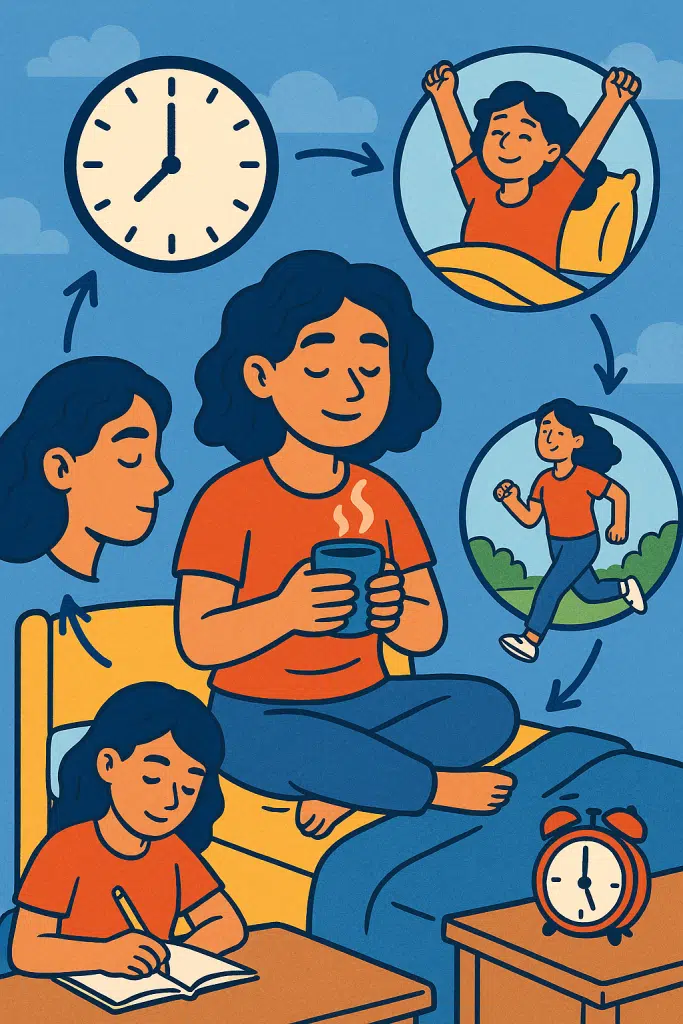The Importance of Building a Routine for Mental Wellness
Charlotte Stone August 11, 2025
Let’s keep it real: life is messy. But guess what? A well‑crafted routine is your secret weapon. The importance of building a routine for mental wellness isn’t just some self‑help fluff—it’s scientifically backed, trending in workplaces, and essential for leveling up your mind and your job performance.

What’s the Big Deal with Building a Routine for Mental Wellness?
Imagine your brain as a high-performance laptop. Constant pop-up decision-making—what to eat, when to move, what to check next—drains your battery fast. A solid routine? That’s your power-saving mode. According to Psych Ontario, routines reduce decision fatigue, lower anxiety, and free up mental energy for the stuff that matters.
And from health pros at Northwestern Medicine, routines do more than just save brainpower—they help reduce stress, improve sleep, encourage better eating and activity habits—basically, the full package of feel-good factors.
2025 Trends That Make Routines Even More Relevant
Let’s give 2025 some love—routines are more than habit, they’re cultural currency now.
1. Wellness as Everyday Practice (Not Just a Trend)
McKinsey’s 2025 wellness report shows that wellness is no longer about fancy one-off retreats—it’s about daily, tailored habits. People across generations, especially Gen Z and Millennials, want mental health integrated into their routines.
2. Nature Breaks That Only Need 15 Minutes
Study from Times of India: Just 15 minutes in nature—even during a busy day—can rewire your brain for less stress and better mood. That’s routine-meets-nature, and it counts.
3. Joy in Micro-Doses Every Day
UC San Francisco & Berkeley’s Big Joy Project: just 5–10 minutes a day of joyful “micro-acts” like gratitude or appreciation can lift happiness and emotional control—especially for people under pressure.
Why Building a Routine for Mental Wellness Is a Productivity Power Move
This blog isn’t just self-care fluff. Routines boost your career too:
- Reduce mental clutter: Knowing what comes next saves cognitive bandwidth for your work tasks. (Psych Ontario)
- Better sleep, better focus: Consistent sleep schedules strengthen mood, concentration, and creative energy. (Psych Ontario & Northwestern)
- More brainpower via movement: Physical activity—even light exercise—releases feel-good brain chemicals, helps insomnia, and reduces anxiety.
- Predictability = calm: According to Tel Aviv University research, when life feels routine, stress flags go down and sense of control goes up.
Putting It into Action: How to Build a Routine That Actually Works
Here’s your cool, practical guide—no preachy 5 am club here:
Step 1: Pick Your Must-Haves
Decide 3–4 routine pillars—maybe sleep, movement, a mental reset, and nature time.
Step 2: Start Tiny, Build Gradually
Use the “66-day rule” for habit formation—but don’t sweat it if it takes longer.
Step 3: Layer in Trendy, Science-Backed Micro-Steps
- Nature break: 15 minutes outside to decompress.
- Micro-joy: 5–10 minutes of gratitude, kindness, or appreciation daily.
- Light movement: Short walks or subtle movement that keeps your mind sharp.
Step 4: Routine = Safety Net
A routine anchors your day. When chaos strikes? You’ve got the basics covered: solid sleep, some movement, a dose of calm. (Verywell Mind argues that routines create predictability, lowering anxiety.)
Step 5: Track and Tweak
Maybe you plan a morning stretch but hate mornings—switch to evening yoga. Personalize, experiment, repeat—but keep the core intact.
Example Routine: Not Perfect, Just Real
Morning
Wake up within a 30-minute window daily to sync your body’s rhythm. Drink a glass of water to rehydrate, then do a quick five-minute stretch—think neck rolls or a gentle spine twist. Write down one thing you’re grateful for, like a cozy bed or a sunny morning. This simple gratitude practice sets a positive vibe for the day.
Midday
Take a 15-minute nature break—step onto a balcony, sit under a tree, or stroll a nearby park. Notice the air, sounds, or greenery to lower stress. Move intentionally: a brisk walk, a few yoga stretches, or a quick dance to a favorite song. This “Zone Zero” reset boosts focus and energy for the rest of your day.
Evening
Unplug from screens 30 minutes before bed to help your brain wind down. Read, sip tea, or chat instead. Jot down three positive moments from your day—maybe a good meal or a kind word from a coworker. This gratitude journaling helps you end on a high note, promoting better sleep.
Career Wins You’ll Actually Feel
Morning habits sharpen mental clarity, making deadlines and big tasks feel more manageable. Better sleep from your evening routine boosts productivity and keeps your mood steady. Midday breaks reduce stress and prevent burnout, letting you reset without crashing. These small steps add up to more focus, energy, and balance in your work and life.
Conclusion
Building a routine for mental wellness—is more than just a catchy SEO term; it’s a game-changer for your mental health and career success. In a world where stress is relentless and burnout is all too common, creating a consistent routine tailored to your mental well-being is like equipping yourself with a secret weapon. Backed by current trends—like the rise of nature-based mindfulness, the power of small “joy micro-acts” that spark happiness, and the growing acceptance of structured routines as the new normal—this approach is grounded in solid science.
Studies show that intentional habits can reduce stress, boost focus, and even improve long-term mental resilience. The best part? You don’t need to overhaul your life. It’s about low-effort, high-reward actions—think five-minute morning meditations, a quick walk in the park, or jotting down three things you’re grateful for each day. These small steps compound over time, rewiring your brain for calm and clarity. Start today, and watch how these micro-habits transform your mindset, supercharge your productivity, and empower you to tackle your to-do list like the unstoppable boss you are.
References
. Gilbert, K. (2023, October 23). 3 expert-backed tips for building mental health routines that stick. Peloton. Retrieved from https://www.onepeloton.com/blog/mental-health onepeloton.com
2. Psychology Ontario. (2025, January 23). The power of routine: How establishing daily habits can improve mental health. Retrieved from https://www.psych.on.ca psych.on.ca
3. Greater Good Health. (2025, June 6). The power of routine: How daily habits improve mental health. Retrieved from https://greatergoodhealth.com greatergoodhealth.com







